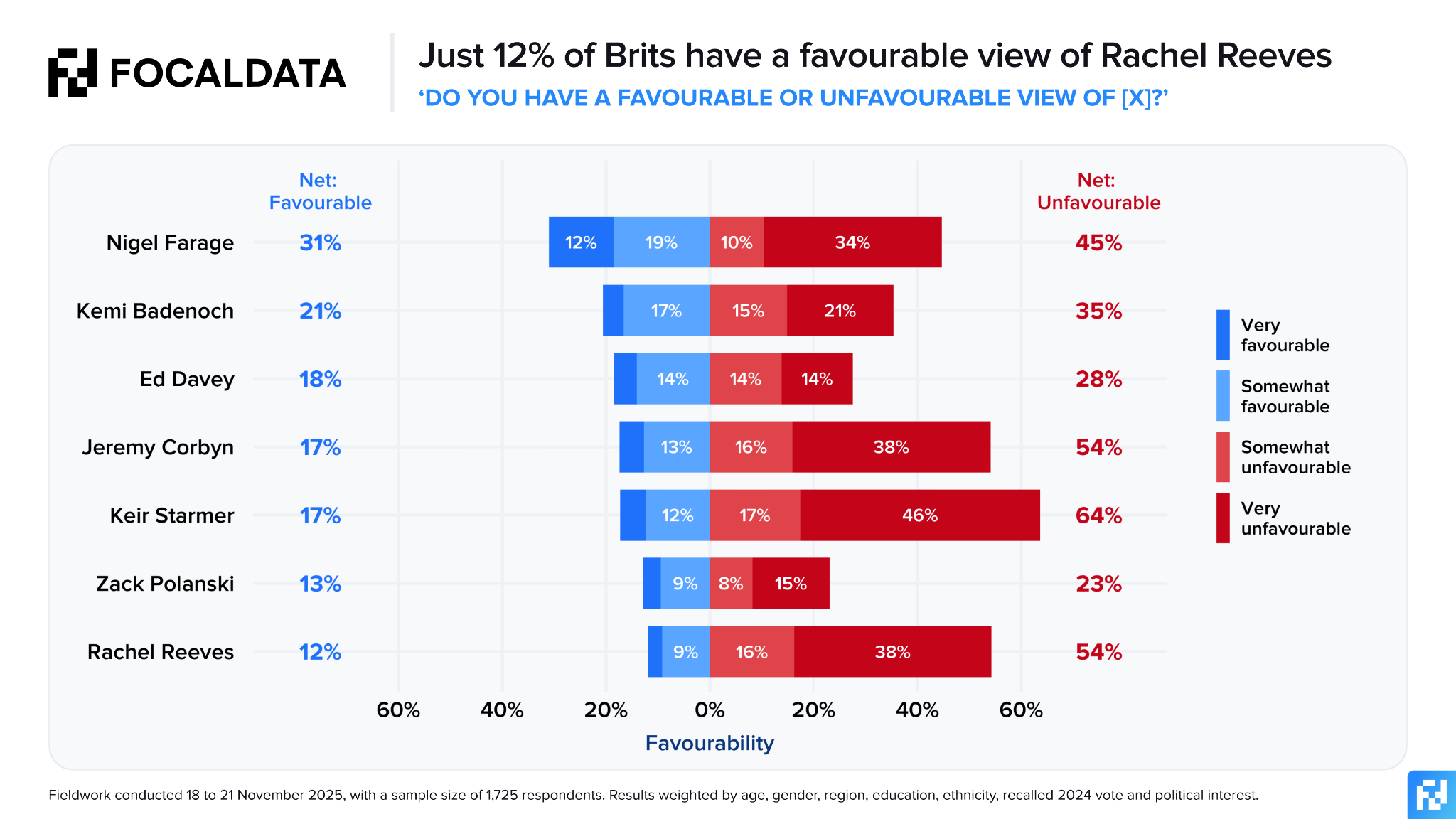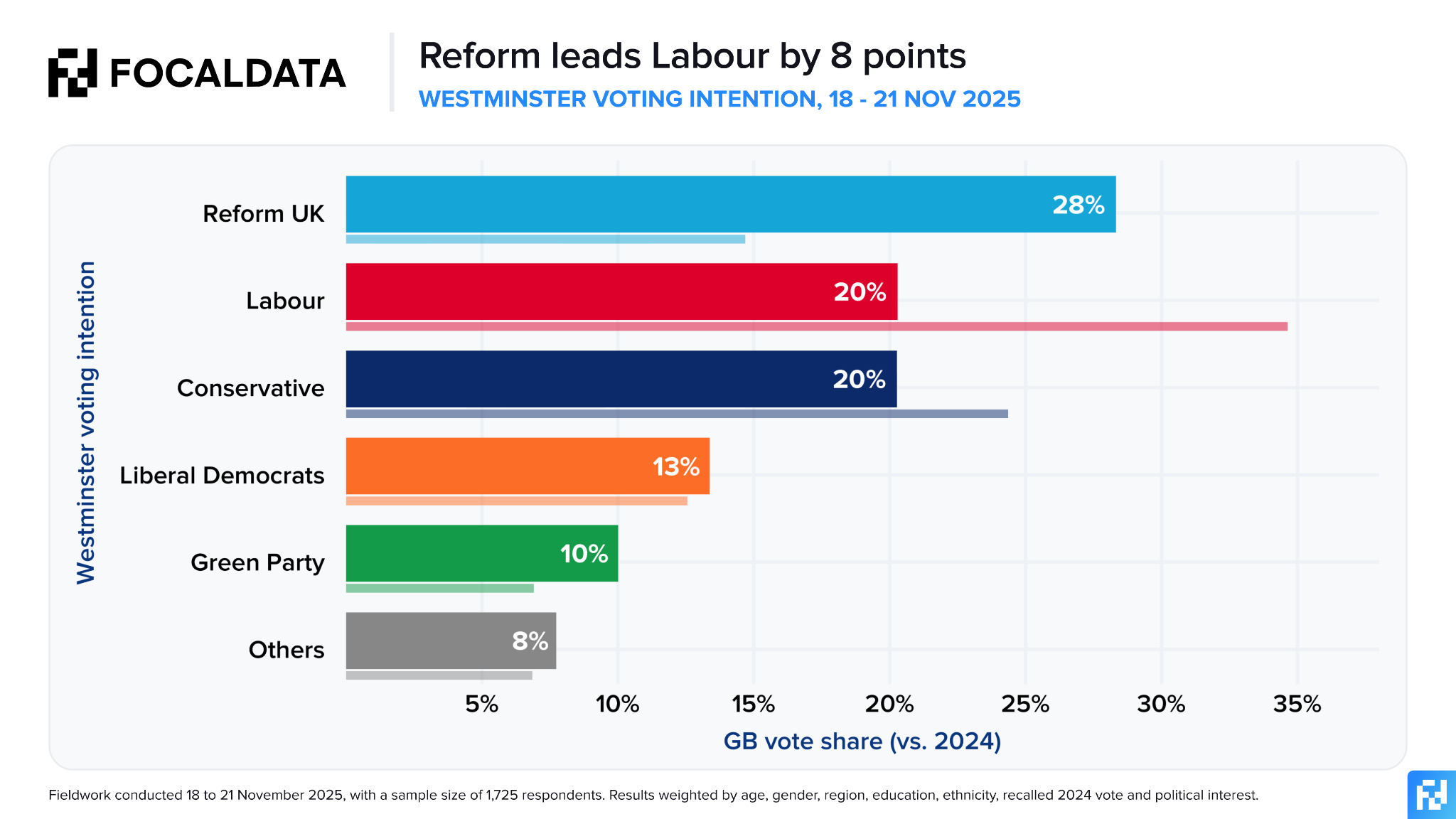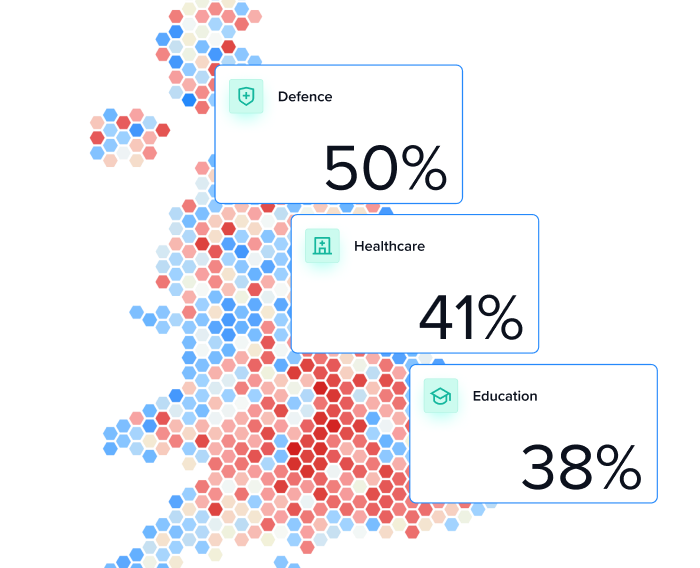Blog/Polling
Labour drops to record low amid gloomy Budget outlook
Ahead of tomorrow's Autumn Budget, the public is in a very bleak mood about the state of the economy and many expect things to get even worse.
Three-quarters of the public (73%) think the country is in a bad financial position, while just 9% believe the economy is in good shape. Looking ahead, only 15% expect conditions to improve over the next year, and a mere 8% think the Budget will leave their own finances better off.
The results paint a gloomy picture for the government and Rachel Reeves, who sits at just a 12% favourability rating.

Focaldata conducted a nationally representative survey of the British public between 18 and 21 November 2025, with a sample size of 1,725 respondents.
Voting intention
On the voting-intention front, Reform continues to lead on 28%, albeit down 2 points on October’s survey, while Labour has fallen to the lowest national share we have ever recorded for the party at 20%. The Conservatives are level pegging with Labour, while the Greens have climbed back into double figures.

Economic circumstances are strongly reshaping the electoral map. Among those who say they are finding things difficult, Reform surges to 38%, while Labour barely reaches double figures (12%).

Among people ‘living comfortably’, Labour (31%) and the Conservatives (25%) remain the top two choices, but among those feeling financially strained, the Greens (13%) join Reform as the topparties. This isn’t simply a matter of Labour supporters feeling better off: Labour retains 77% of its 2024 voters who say they are doing well financially, but among those struggling, the majority have switched party – with 17% apiece now backing the Greens and Reform.

Budget policy
The public is split over freezing income tax thresholds (36% say it’s the right thing to do, 35% say it’s wrong) and over scrapping the two-child benefit cap (39% right, 37% wrong). Labour, Liberal Democrat and Green voters narrowly support both measures, but Conservative and Reform supporters tend to oppose them.

While most people (59%) expect Labour to break its manifesto pledge not to ‘increase taxes on working people’, voters appear more tolerant of freezing income tax thresholds than raising income tax directly. Nearly two-thirds (63%) say increasing income tax would breach the pledge, compared with only 35% who say the same about threshold freezes.

However, trust remains low. Only one in five (20%) think any pledge-breaking would be driven by unforeseeable economic conditions. Three in five (60%) believe Labour knew they would need to break the pledge but did not say so before the election.
On broader economic policy, the public mood is moving towards spending cuts. Only 22% say the government should increase taxes and spend more on public services. 29% want taxes and spending to be the same as now, and 32% want taxes to be reduced and less to be spent on public services.
Key consumer stats
- A quarter of the public say the cost of energy and utility bills is the biggest barrier to them achieving financial security, higher than any other factor.
- Just 22% expect their household’s financial position to improve over the next 12 months, with 42% expecting things to get worse. These stats have big implications for consumer behaviour.
- Among those who don’t own their home, 2-in-5 think it’s ‘somewhat’ or ‘very’ likely that they’ll struggle to pay their mortgage or rent over the next 12 months.
- Only 15% expect to spend more on major household purchases, and 47% expect to spend less.
- Likewise, just 14% think they will spend more on leisure and hospitality activities, with half expecting to spend less.
- One in five (21%) expect to save more over the next year, and 41% expect to save less.
Data tables
Data tables for this survey can be found here.
“The Chancellor prepares to deliver the Spending Review” by HM Treasury, CC BY-NC-ND 2.0


